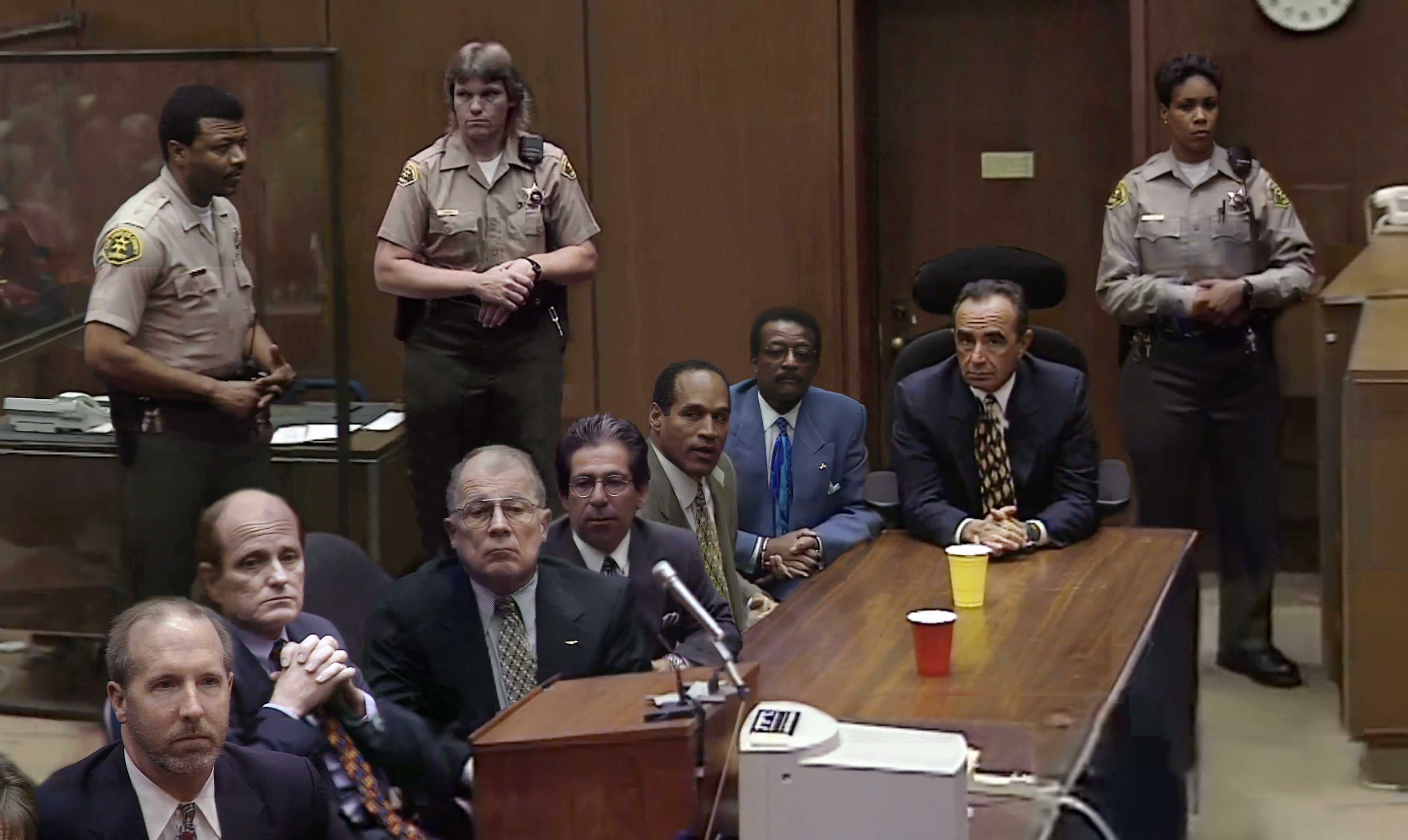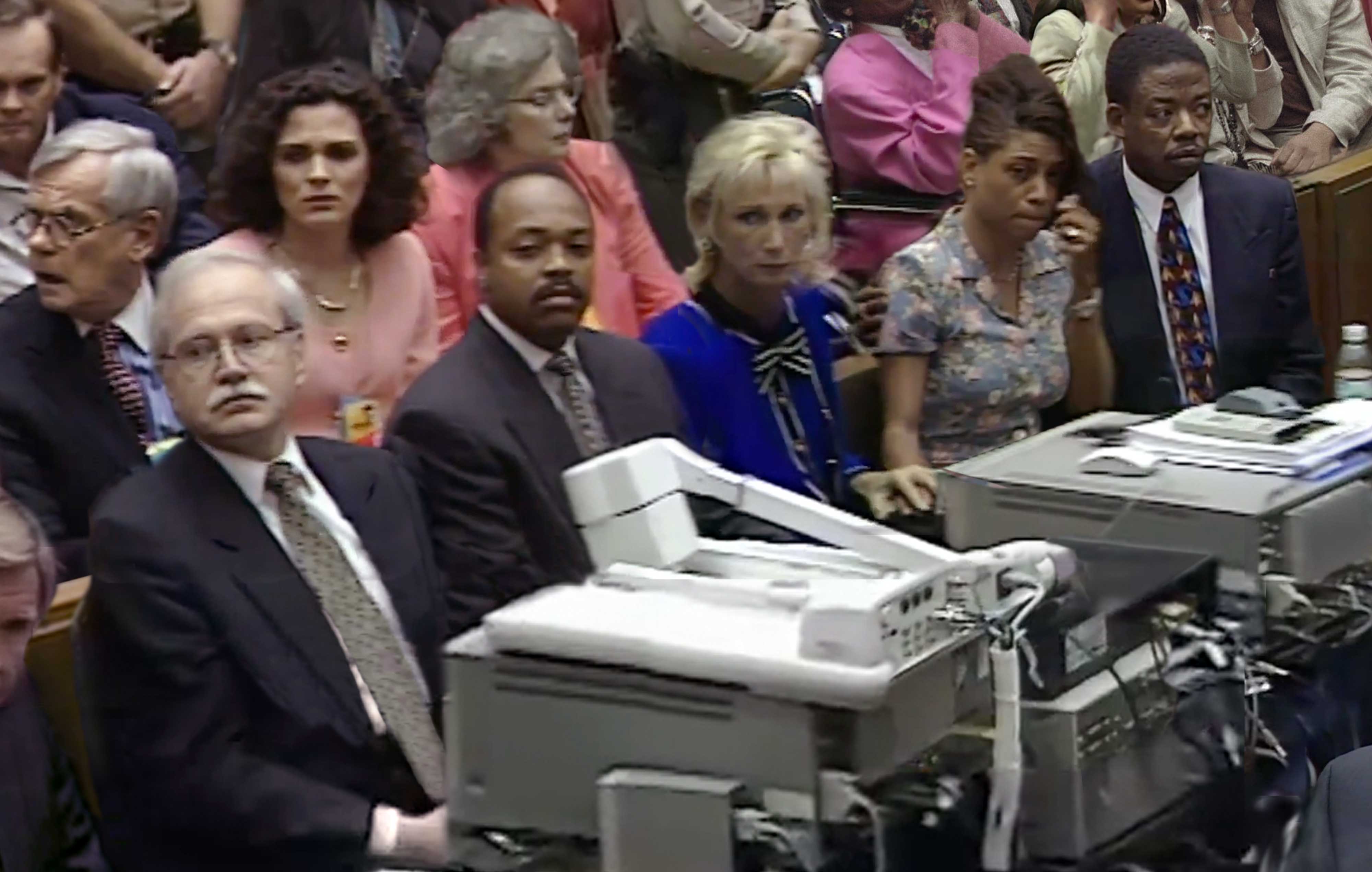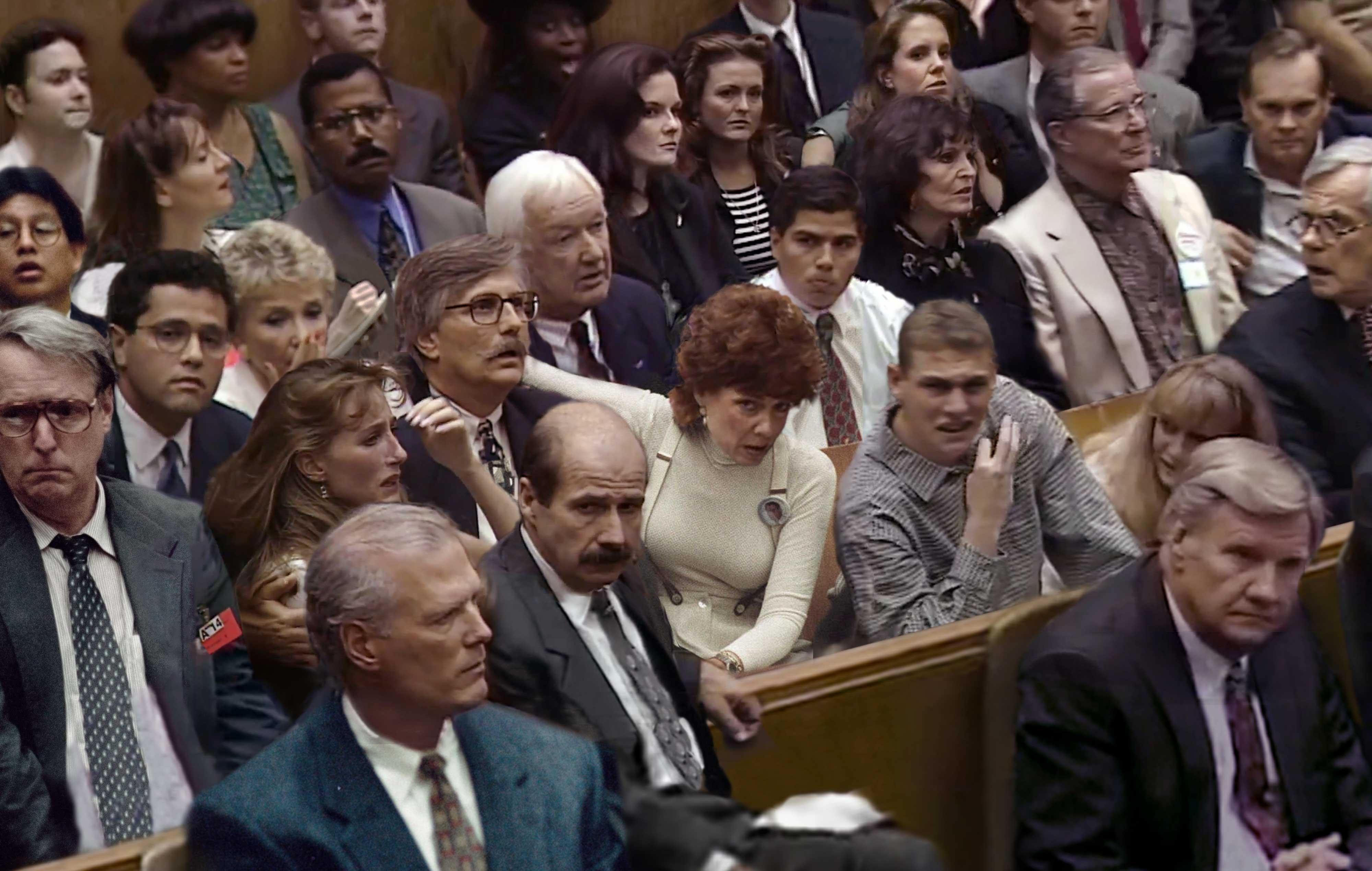OJ Simpson Trial Verdict Date: The Drama, The Shock, And The Legacy
There’s no denying it, the OJ Simpson trial is one of the most talked-about legal cases in history. From the moment it began, the trial captured the world’s attention, sparking debates, controversies, and endless speculation. The OJ Simpson trial verdict date became a cultural phenomenon, and its impact is still felt today. But what really happened, and why does this case continue to fascinate people around the globe?
Picture this: a courtroom packed with reporters, legal experts, and curious onlookers. The cameras are rolling, the tension is palpable, and everyone’s waiting for the verdict. This wasn’t just a trial; it was a spectacle, a media circus that dominated headlines for months. The OJ Simpson trial verdict date wasn’t just about justice—it was about race, celebrity, and the American legal system.
As we dive deeper into this story, you’ll uncover the twists and turns that made this case so unforgettable. From the evidence presented to the defense strategy, every detail played a role in shaping the outcome. So, grab your popcorn, because this is more than just a legal case—it’s a story that reshaped how we view crime, media, and justice.
Understanding the OJ Simpson Trial: A Quick Recap
Let’s rewind to the early 1990s. OJ Simpson, a former NFL star and Hollywood actor, was charged with the murders of his ex-wife Nicole Brown Simpson and her friend Ronald Goldman. The trial began in November 1994 and lasted for nearly a year, culminating in the infamous OJ Simpson trial verdict date on October 3, 1995. It was a moment that millions of Americans tuned in to watch, and the verdict sent shockwaves across the nation.
The case was a rollercoaster of emotions and legal drama. Prosecutors painted Simpson as a jealous ex-husband driven to violence, while the defense team, famously known as the "Dream Team," argued that the evidence was flawed and the police were corrupt. The trial became a battleground for issues of race, privilege, and the justice system’s credibility.
Who Was OJ Simpson Before the Trial?
Before the trial, OJ Simpson was a beloved figure in American pop culture. Born in San Francisco in 1947, he rose to fame as a standout running back for the Buffalo Bills. His athletic achievements earned him numerous awards, including the Heisman Trophy in 1968. After retiring from football, Simpson transitioned into acting, starring in films like "The Towering Inferno" and the "Naked Gun" series.
- Indian Web Series Bold Trending Titles You Cant Miss
- Trending Now Ullu Web Series Adult Videos Watch Now
But behind the glamorous façade, there were whispers of domestic issues. Simpson’s relationship with Nicole Brown Simpson was tumultuous, marked by allegations of abuse. These issues would later become central to the prosecution’s case.
The OJ Simpson Trial Verdict Date: What Happened?
On October 3, 1995, the world held its breath as the jury delivered its verdict. In a move that stunned many, OJ Simpson was acquitted of all charges. The decision was met with cheers in some communities and outrage in others, reflecting the deep racial and social divides that the trial exposed.
For many African Americans, the verdict was a triumph of justice in a system that had often failed them. For others, it was a failure of accountability, a sign that privilege and celebrity could shield someone from the consequences of their actions. The OJ Simpson trial verdict date became a flashpoint for discussions about race, class, and the legal system.
The Key Players in the Trial
Every great story needs compelling characters, and the OJ Simpson trial had plenty. Here’s a quick rundown of the key players:
- OJ Simpson: The defendant, a former NFL star and actor accused of murder.
- Prosecutors: Marcia Clark and Christopher Darden led the prosecution, tasked with proving Simpson’s guilt beyond a reasonable doubt.
- Defense Team: Nicknamed the "Dream Team," this group included high-profile lawyers like Johnnie Cochran, Robert Shapiro, and F. Lee Bailey.
- Judge Lance Ito: The presiding judge who faced the daunting task of maintaining order in a highly publicized trial.
The Evidence That Shook the Nation
The prosecution presented a mountain of evidence against Simpson, including DNA, fingerprints, and a bloody glove found at the crime scene. But the defense turned these pieces of evidence into weapons, arguing that they had been mishandled or tampered with by the Los Angeles Police Department (LAPD).
One of the most memorable moments came when Johnnie Cochran famously declared, "If it doesn’t fit, you must acquit," referring to the glove that appeared too small for Simpson to wear during a dramatic courtroom demonstration. This line became a rallying cry for the defense and a symbol of the trial’s larger themes.
Did Racism Play a Role in the Verdict?
Many experts believe that race played a significant role in the OJ Simpson trial verdict date. The defense team strategically highlighted instances of police misconduct and racism, casting doubt on the credibility of key witnesses like Detective Mark Fuhrman. This strategy resonated with many African American jurors, who were skeptical of law enforcement’s intentions.
On the other hand, critics argued that the defense exploited racial tensions to sway the jury, regardless of the facts. This debate continues to this day, highlighting the complexities of race in the American justice system.
Public Reaction to the Verdict
When the verdict was announced, reactions were polarized. In predominantly Black neighborhoods, people celebrated what they saw as a victory for justice. In predominantly White areas, many were outraged, believing that Simpson had gotten away with murder.
The OJ Simpson trial verdict date became a cultural moment, sparking discussions about race, privilege, and the media’s role in shaping public opinion. It also raised questions about the fairness of the justice system and whether celebrity status could influence legal outcomes.
The Media’s Role in the Trial
The OJ Simpson trial was one of the first major cases to be extensively covered by the 24-hour news cycle. Cable networks like CNN and Fox News provided live updates, while tabloids sensationalized every detail. The media’s coverage played a significant role in shaping public perception, often blurring the lines between fact and fiction.
Some critics argue that the media circus overshadowed the seriousness of the case, turning it into a form of entertainment. Others believe that the coverage brought much-needed attention to issues of race and justice. Regardless of perspective, the trial’s media presence set a precedent for future high-profile cases.
The Aftermath: OJ Simpson’s Life Post-Verdict
After the criminal trial, Simpson faced a civil lawsuit brought by the families of Nicole Brown Simpson and Ronald Goldman. In 1997, he was found liable for their wrongful deaths and ordered to pay millions in damages. However, due to his limited assets, the families struggled to collect the full amount.
In later years, Simpson continued to make headlines for various reasons, including a botched armed robbery in Las Vegas in 2008. He served nine years in prison for that incident before being released in 2017. Today, Simpson lives in Florida, away from the spotlight that once defined his life.
Lessons Learned from the OJ Simpson Trial
The OJ Simpson trial left a lasting impact on the legal system and society as a whole. It highlighted the importance of thorough investigations, transparent procedures, and diverse juries. It also raised questions about the role of media in high-profile cases and the potential for bias in the justice system.
For those who followed the trial, the OJ Simpson trial verdict date remains a moment of reflection. It serves as a reminder that justice is not always clear-cut and that the legal system is far from perfect.
Why Does the OJ Simpson Trial Still Matter?
More than two decades later, the OJ Simpson trial continues to captivate audiences. Shows like "The People v. OJ Simpson: American Crime Story" and documentaries like "OJ: Made in America" have reignited interest in the case, introducing it to a new generation.
But why does it still matter? For one, it reflects ongoing debates about race, privilege, and the justice system. It also serves as a cautionary tale about the dangers of sensationalizing crime and the importance of seeking truth over entertainment.
What Can We Learn from the Trial?
The OJ Simpson trial teaches us several valuable lessons:
- The Importance of Evidence: Proper handling and presentation of evidence are crucial in ensuring fair trials.
- Racial Bias in the Justice System: The trial exposed deep-seated issues that continue to affect marginalized communities.
- The Role of Media: Responsible journalism is essential in maintaining public trust and understanding.
Final Thoughts: The Legacy of the OJ Simpson Trial
As we look back on the OJ Simpson trial verdict date, it’s clear that this case was more than just a legal battle. It was a reflection of societal issues that still resonate today. Whether you see it as a triumph of justice or a failure of accountability, there’s no denying its lasting impact.
So, what’s next? If you’re intrigued by this case, consider diving deeper into the details. Read books, watch documentaries, and engage in discussions about the themes it raises. And remember, the pursuit of justice is an ongoing process—one that requires vigilance, empathy, and a commitment to fairness.
Got thoughts on the OJ Simpson trial? Drop a comment below and let’s keep the conversation going. Who knows? Maybe your perspective will shed new light on this timeless tale.
Table of Contents
- Understanding the OJ Simpson Trial: A Quick Recap
- Who Was OJ Simpson Before the Trial?
- The OJ Simpson Trial Verdict Date: What Happened?
- The Key Players in the Trial
- The Evidence That Shook the Nation
- Did Racism Play a Role in the Verdict?
- Public Reaction to the Verdict
- The Media’s Role in the Trial
- The Aftermath: OJ Simpson’s Life Post-Verdict
- Lessons Learned from the OJ Simpson Trial
- Why Does the OJ Simpson Trial Still Matter?
- Final Thoughts: The Legacy of the OJ Simpson Trial



Detail Author:
- Name : Dr. Bell Donnelly I
- Username : gmclaughlin
- Email : wwelch@franecki.com
- Birthdate : 1997-04-21
- Address : 85848 Maggio Cove East Jaleel, IL 57394-6994
- Phone : 1-346-629-3092
- Company : Kihn LLC
- Job : Trainer
- Bio : Velit odit sunt tenetur. Tempore cumque veritatis sint. Suscipit aut aut tempore ut nesciunt. Beatae voluptatum et nobis dolorem neque est facilis. Voluptas nesciunt commodi impedit incidunt.
Socials
facebook:
- url : https://facebook.com/simonis1974
- username : simonis1974
- bio : Assumenda hic molestiae rerum voluptatem ut iusto.
- followers : 6991
- following : 2804
instagram:
- url : https://instagram.com/gsimonis
- username : gsimonis
- bio : Autem voluptas culpa eum beatae repellendus. Vel et est praesentium unde.
- followers : 5164
- following : 2743